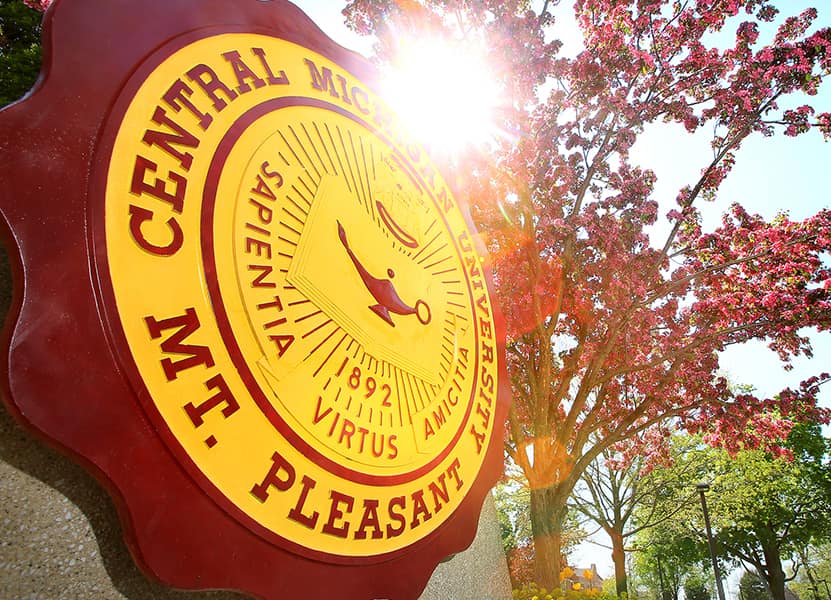The collection includes Dr. Clarke’s biographical materials, papers, memorabilia, and his collection on the heart and his research interests. The papers include certificates of appreciation, membership, degrees earned, an autobiographical manuscript, correspondence, materials related to his collecting interests, Polyclinic, professional papers he presented at conferences and associations, and published articles that he wrote. Correspondence includes both personal and professional correspondence, some of which relates to CMU and the CHL. The memorabilia includes plaques of appreciation, mason paraphernalia, and an academic hood, probably from CMU. His collection of publications and information about the heart, ethylene diamino tetraacetic acid (EDTA), endate, and chelation therapy reflect his research and professional interests. Also included are audiovisual materials, mostly cassette tapes, of research topics of interest to Dr. Clarke and a tape of an award dinner where he was honored for his long service to Providence Hospital. Photographs and other visual or illustrative materials are found throughout the collection.
A 2023 addition includes 1 folder of family photographs of Dr. Clarke, Sr. and his parents, Hannah Grove Clarke and James George Clarke, a veterinarian, and photographs of the veterinary office and livery stable, where he worked, and the family home. Other family photographs are of his wife, Lucile C. Hogan (1892-1968), and her extended Proud family, and a Vermont one-room school in Vermont where a Proud relative attended or taught. The photographs have tape and edge damage. Information taped to them about the images was removed and photocopied and a photocopy is found immediately after each related photograph.
For additional correspondence and information related to Dr. Clarke’s donation of his collections to the CHL, see the CHL Organizational Records collection.
Biography:
Norman E. Clarke was born August 27, 1892. He was a self-made man. In June 1908 Clarke took his first full-time job, working in a Mount Pleasant (Mich.) factory. He found factory work unrewarding and, with the encouragement of his mother, continued to both work and attend school. In his senior year of high school, Clarke dropped out to seek his fortune in Detroit (Mich.). Eventually he found work as a clerk in the Cadillac Motor Car Co.
Young Norman enrolled in a program that allowed him to finish high school and accumulate credits at Central Michigan Normal School, now Central Michigan University (CMU). In June 1913, Clarke graduated from CMU with a teacher’s certificate. In September 1913, he began teaching in Ewen (Mich.).
In Ewen, he met a doctor who interested him in medicine. After two years of teaching, Clarke returned to Mount Pleasant and again enrolled at CMU. After a year as a student, he accepted a position as principal of a school in Saginaw (Mich.).
In Saginaw, Clarke again found himself in the company of a doctor, this time a surgeon, who asked Clarke to serve as his assistant. This experience reinforced Clarke’s desire to become a doctor. In 1917 he entered the University of Michigan Medical School. After receiving his medical degree in 1921, Dr. Clarke did postgraduate work at Ann Arbor and received a Master of Science degree. He specialized in the emerging fields of cardiology and electro-cardiology. When the director of Detroit’s Henry Ford Hospital inquired about someone to establish the hospital’s proposed "Heart Station," the first in Detroit, Dr. Clarke’s name was successfully nominated.
Dr. Clarke began work at Henry Ford Hospital in 1923. In 1926 he left Ford Hospital and began a private practice in cardiology, which he continued until 1980. In addition to private practice, Dr. Clarke participated in a variety of other medical activities. In the late 1920s he founded Grace Hospital’s Heart Station and indigent clinic. His work with the poor led Dr. Clarke to establish the mid-west’s first HMO - type clinic, Polyclinic in Detroit, during the 1930s. From the 1930s through the 1950s, Dr. Clarke developed the departments of cardiology and electro-cardiology and research at Detroit’s Providence Hospital.
Beyond his medical interests, Norman Clarke liked collecting books and manuscripts. In the 1940s, Dr. Clarke began to collect books by Mark Twain and become interested in the history of the Great Lakes and the Old Northwest Territory. Eventually, Dr. Clarke decided to give the collection to CMU out of respect for the community in which he grew up and to thank the school where he earned his basic education.
On February 2, 1954, Dr. Clarke signed a deed of gift donating his collection to CMU. In recognition of the gift, the new institution was named the Clarke Historical Library (CHL). Although Dr. Clarke had formally given his material to CMU, he retained a continued interest in "his" library for the remaining thirty years of his life.
The death of his wife, Lucile C. Hogan Clarke (1892-1968), led Clarke to formally donate children’s books to CMU in 1971 as the Lucile Clarke Memorial Children’s Library.
Until his death Dr. Clarke continued to support the library generously by donating historical and children’s volumes, as well as manuscripts. Dr. Norman E. Clarke died in 1984. (Information from the Clarke's web page.)
Dr. Clarke had three children, Dr. Norman E. Clarke, Jr., who served on the CHL Board, Marion Frye (died in May 2000), and Dr. Charles Clarke. (This information is from the collection.)
